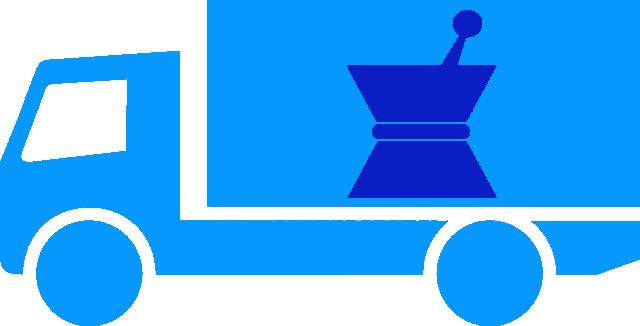With the baby boomer generation aging and requiring an increased amount of pharmaceuticals each day, pharmaceutical deliveries are becoming more and more of a common occurrence. Those in convalescent homes and hospices are the key recipients of this type of delivery system. Once this pharmaceutical delivery service is of need, the question is raised: “Who do I turn to?”
Third party logistics companies can perform a wide variety of services, including warehousing, distributions and deliveries. When it comes right down to it, however, one of the most important of these services is deliveries. More specifically, pharmaceutical deliveries. These are extremely important for one main reason…the destinations (people) they are being delivered to. The elderly in convalescent homes and those with illnesses in hospice or elsewhere rely on these critical pharmaceuticals being delivered on time. In the growing world of pharmaceutical deliveries, people and organizations reach out to third party logistics providers to make these vital deliveries.
 Pharmaceutical Delivery Structure
Pharmaceutical Delivery Structure
So how does it work? Generally, there are two ways of making a pharmaceutical delivery happen. The first involves a patient and a pharmacy. When a patient is ill and needs pharmaceuticals, he/she contacts a third party logistics company and provides it with the appropriate information on when and where to pick-up and deliver the pharmaceuticals. The delivery company is then charged with picking up the pharmaceuticals from a pharmacy, such as a Walgreens or CVS, and delivering them to the patient—whether in a hospice, residential home, convalescent home or a similar location.
The second form of pharmaceutical deliveries involves a patient and a commercial pharmacist. In this type of scenario, a delivery company picks up a patient’s pharmaceuticals directly from a commercial pharmacist and delivers them to the patient wherever he/she may be located. Being that commercial pharmacists receive pharmaceuticals directly from drug manufacturing companies, patients don’t have the ability to retrieve pharmaceuticals from such entities. This is why a delivery company is needed to make it happen.
In the end, pharmaceutical deliveries go from a pharmacy or a commercial pharmacist to the patient. It’s that simple.
Pharmaceutical Delivery Cost
Although the concept behind pharmaceutical deliveries seems to be very straightforward, you might be asking how the cost of such a delivery is determined. Just like the structure of the service, the pricing is easy to understand. Basically, there are two factors to consider when determining the cost:
In essence, the cost of a pharmaceutical delivery is dependent on how long or short of a distance it needs to travel and how quickly the patient needs it to be delivered. With this being said, let’s talk about the distance factor. Generally speaking, there are pharmacies everywhere. Because of this, the distance that pharmaceuticals need to be delivered in most scenarios is within a few miles. That’s simple enough to calculate. What changes this, however, is the speed of the delivery. While different types of services are offered by different delivery companies, some of the most common are:
If a patient needs a pharmaceutical to be delivered 100 miles from the pharmacy with STAT delivery, the cost will increase. Conversely, delivering the pharmaceutical the exact same distance with next-day service will cost less.
Pharmaceutical Delivery Security
Now that you have an idea of how the process works and how pricing is determined, you probably want to know about security and reliability. Who is actually picking up and delivering your pharmaceuticals and are they trustworthy? Most delivery companies require delivery drivers to be thoroughly screened via:
In addition, deliveries all conform to HIPAA and other federal regulations that ensure patient privacy and security of Protected Health Information (PHI). For example, when a class-one narcotic is picked up and delivered to a patient, a signature is required. In some regions of the nation, two signatures are required for this type of delivery. All of this ensures that a patient’s highly important pharmaceuticals are being delivered with absolute security.
Pharmaceutical Deliveries at Rover 3PL
In a world where pharmaceutical deliveries are increasing daily, it’s important to trust a company that has been performing such deliveries for a while. Here at Rover 3PL, our pharmaceutical delivery services successfully complete about 1,500 deliveries around the nation each day with the help of independent contractors. Drivers are screened with federal and state criminal background checks, urinalysis, analyses of driving records and more. We are here to ensure that our clients receive the pharmaceuticals they so desperately need when they need them.
